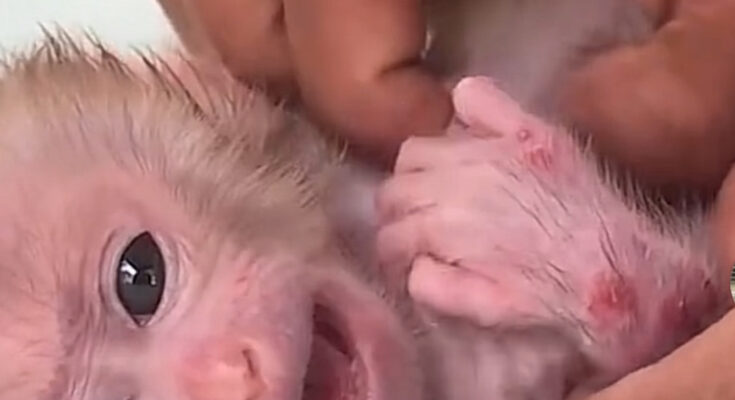Raising baby monkeys is a rewarding yet challenging experience that requires patience, dedication, and proper knowledge. These intelligent and social animals have specific physical and emotional needs, especially during their early stages of development. Whether you’re a licensed caretaker, wildlife rehabilitator, or part of a conservation program, understanding the essentials of baby monkey care is crucial. Below are some important tips to help ensure your baby monkey grows up strong, happy, and healthy.
1. Provide Proper Nutrition
Nutrition is the foundation of a baby monkey’s health. In the wild, young monkeys depend on their mothers’ milk for the first few months. If you’re caring for an orphaned baby, you’ll need a suitable milk replacer recommended by a veterinarian who specializes in primates. As the monkey grows, you can slowly introduce mashed fruits, soft vegetables, and specially formulated primate chow. Avoid processed or sugary foods, as these can cause digestive issues and long-term health problems. Clean, fresh water should always be available.
2. Create a Warm and Safe Environment
Baby monkeys are sensitive to temperature changes. Keep their living space warm—around 85°F (29°C) for newborns—and gradually lower it as they grow older. A soft blanket or heating pad (covered for safety) can help them feel comfortable. The enclosure should be secure, clean, and spacious enough for movement and play. Make sure there are no sharp objects or small items they could swallow.
3. Focus on Socialization and Bonding
Monkeys are highly social creatures that thrive on companionship. In the wild, they learn essential behaviors by watching their mothers and interacting with others. Spend quality time with your baby monkey every day—gentle play, grooming, and hand-feeding all help build trust and reduce anxiety. If possible, allow your baby to interact with other monkeys to develop proper social skills.
4. Keep Hygiene a Priority
Maintaining cleanliness is key to preventing illness. Regularly clean the monkey’s enclosure, food bowls, and toys with non-toxic disinfectants. Baby monkeys may need help grooming at first, so gently wipe them with a damp, soft cloth when necessary. Always wash your hands before and after handling them to prevent the spread of germs.
5. Schedule Regular Veterinary Checkups
A qualified exotic animal veterinarian should monitor your baby monkey’s growth, diet, and overall health. Routine checkups help detect any early signs of disease, nutritional deficiencies, or developmental issues. Vaccinations, parasite control, and dental care are also important parts of a monkey’s long-term well-being.
6. Provide Mental Stimulation
Monkeys are curious and intelligent animals that require mental challenges to stay happy. Offer safe toys, puzzle feeders, and climbing structures to keep them active and engaged. Environmental enrichment not only prevents boredom but also helps develop their problem-solving and motor skills.
Final Thoughts
Raising a baby monkey is not like caring for a typical pet—it’s a lifelong responsibility that requires special knowledge and commitment. With the right care, nutrition, environment, and affection, your baby monkey can grow into a healthy, well-adjusted adult. Always remember that monkeys belong to the wild, so if you’re raising one for rehabilitation, the ultimate goal should be to prepare it for a safe and successful return to its natural habitat.



